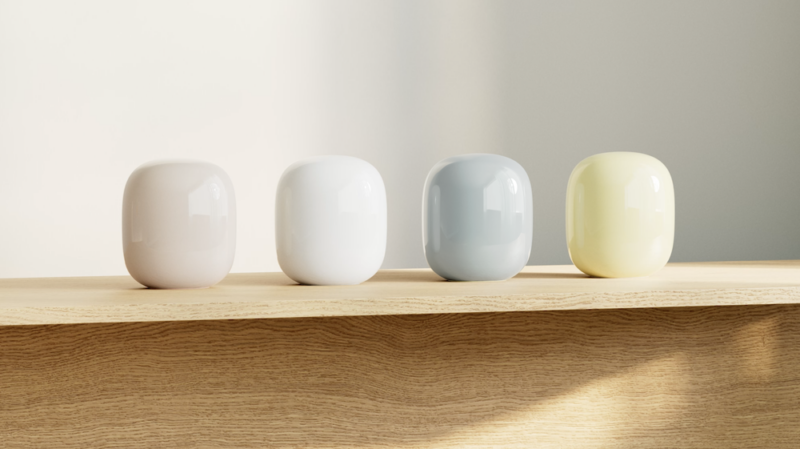Nest Wifi Pro brings 6E network, removes Assistant and backward compatibility

Enlarge / The four Nest Wifi Pro colors you can buy for your bird's-egg-style connectivity. From left: Linen, Snow, Fog, Lemongrass. (credit: Google)
Google's Nest Wifi Pro system, previously seen at the Federal Communications Commission and in accidental retail listings, has been made official. The system expands the wireless powers of a Nest mesh system and adds Thread and Matter support, but it can't work with older Nest Wifi hardware.
The big upgrade in the Pro system is Wi-Fi 6E, which makes use of newer spectrum space in the 6-7 GHz band, along with the common 2.4 and 5 GHz bands. For those living in a crowded Wi-Fi environment, 6E could mean better, faster connections, though at reduced range and with less wall and floor penetration than 2.4 GHz. If you have very new devices that work with Wi-Fi 6E, you'll immediately see the change. For most of us, at the moment, 6E is more future-proofing than signal-boosting, though each device that uses the newer standard takes some load off the network.
Google says that Nest Wifi Pro's router unit ($199) can cover up to 2,200 square feet per piece, which is 200 questionable feet more than the Eero Pro 6E and has a theoretical top speed of 5.4Gbps. Notably, each Wifi Pro piece comes with two 1 Gbps Ethernet ports, not just the router, allowing for both wired backhaul between multiple units and for connecting select devices via Ethernet (likely with the addition of a network switch). That's an improvement over the prior Wi-Fi 5-based Nest Wifi, which was an otherwise all-around decent performer in our benchmark testing.